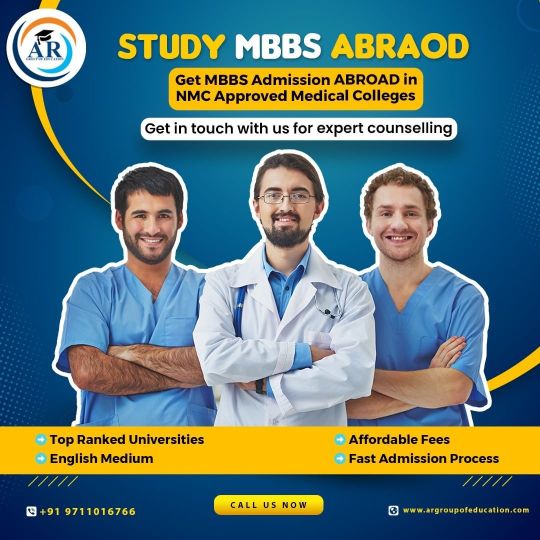#BMAT test preparation
Text
BMAT test preparation in Dubai:-
Amourion Training Institute provides professional training services in Dubai. Our best-selling courses are SAT, IELTS, TOEFL, GMAT, UCAT, etc. If you need assistance in these types of courses, then it's time to reach out to us. Let us help you with the preparation. https://www.amourion.com/course-details/bmat-training-dubai

#BMAT test prep#BMAT exam preparation#Best BMAT preparation course#BMAT test preparation#EMSAT coaching in Dubai#EMSAT training institutes near me#IELTS training classes in Dubai
0 notes
Text

BMAT exam preparation-
Amourion Training Institute is a leading provider of training and learning solutions in Dubai. We offer a wide range of courses, including computing, language, finance, medical, and digital marketing. Our courses are taught by experienced professionals and are designed to help you achieve your career goals. We also offer study abroad planning services to help you find the right college or university for your needs. To know more information visit: https://www.amourion.com/course-details/bmat-training-dubai
0 notes
Text
How Studying Abroad in Australia Can Transform Your Life?
Unlocking Life Transformation: The Impact of Studying Abroad in Australia
Embarking on a journey of studying abroad is a transformative experience that has the potential to reshape your life in ways you might not have envisioned. Amid the myriad choices for your academic expedition, Australia stands out as an exceptional destination, offering a harmonious blend of top-notch education, cultural diversity, and ample opportunities for personal growth.
Benefits of Studying Abroad:
Enhanced Academic Focus:
Studying abroad introduces you to a fresh academic environment, reigniting your passion for learning. Varied teaching methods and diverse perspectives challenge conventional thinking, resulting in improved academic performance. Interacting with professors and students from diverse backgrounds broadens your intellectual horizons, fostering a deeper understanding of your chosen field.
Cultural Immersion:
Living among locals provides a unique opportunity to immerse yourself in their customs, traditions, and way of life. This exposure deepens your cultural understanding and enhances your adaptability and cultural adaptability.
Independence and Personal Growth:
Gaining independence is a significant outcome of studying abroad. Being away from your familiar support network encourages self-reliance and personal growth. Navigating daily life in a new country necessitates stepping out of your comfort zone, adapting to new situations, and developing problem-solving skills. The challenges faced independently contribute to building confidence and resilience that prove valuable in various aspects of life.
Employability Boost:
International experience is increasingly valued by employers. Studying abroad showcases your adaptability, cross-cultural communication skills, and global mindset—qualities crucial in today's workplace. Your overseas experience sets you apart from other candidates, making you more attractive to future employers and broadening your career horizons.
Language Acquisition:
Engaging with locals and navigating daily life in a new language presents an opportunity to enhance your language skills. Mastering a new language not only facilitates better communication but also provides a competitive edge in the global job market.
Global Friendships:
Interacting with fellow international students and locals enables you to forge lifelong friendships, creating a global network that exposes you to diverse perspectives and ideas. This experience expands your horizons beyond what you might have previously thought possible.
Opting for Australia as your academic destination through goto university study abroad not only ensures top-notch academic excellence but also guarantees a vibrant array of experiences that significantly contribute to both personal and professional development. The distinctive blend of high-quality education, cultural immersion, and a myriad of opportunities positions the act of studying in Australia as a key catalyst for embarking on a genuinely transformative life journey
#abroad services mumbai#delhi consultancy#delhi overseas advisors#sat exam training#lnat preparation india#overseas advisors kerala#pune consultancy#ielts classes india#bmat test india#sat coaching india
0 notes
Link
#bmat#bmat classes#bmat prep#bmat preparation#bmat test#bmat tutor#bmat training#bmat classes in dubai#bmat prep in dubai#bmat preparation in dubai#bmat test in dubai#bmat tutor in dubai#bmat training in dubai
0 notes
Text
A Levels for Medicine: Navigating the Path to UK Medical Schools
Introduction
A Levels, short for Advanced Levels, are standardized exams taken by students in the UK during the final years of secondary education. For students aspiring to pursue medicine, A Levels in medicine are a crucial qualification for admission to prestigious universities. The competition for seats in medical schools in the UK is fierce due to the limited number of places available. Therefore, universities place great emphasis on A Level results when evaluating applicants for their medical courses. A Level exams test students in critical subjects like Physics, Biology, Chemistry, and Mathematics. Performing well in these exams significantly enhances a student's chances of securing a place at a university of their choice.
Understanding the 2024 Entry Requirements
Specific Requirements for Aspiring Medical Students
Medical schools in the UK generally require applicants to have completed their A Levels with high marks in specific subjects. Typically, medical schools expect candidates to have excelled in three A Level subjects, with Chemistry and Biology being mandatory. The third subject can be either Physics or Mathematics. Universities often set specific grade requirements, such as achieving A or A* in these subjects.
In addition to academic qualifications, universities look for candidates with relevant experience and extracurricular activities. This can include work experience in healthcare, voluntary work, or participation in related activities. While meeting the minimum entry requirements is essential, it does not guarantee admission due to the competitive nature of medical school admissions. Additional qualifications and experiences can be decisive in receiving an offer from a university.
Core Subjects and Additional Requirements
Essential A Level Subjects
Biology: A foundational subject for medicine, providing essential knowledge of the principles of life.
Chemistry: Critical for understanding chemical processes and requirements of the human body.
Physics or Mathematics: These subjects develop problem-solving and analytical skills crucial for medical studies.
Additional Qualifications
Some universities may require additional qualifications like the UK Clinical Aptitude Test (UKCAT) or the BioMedical Admissions Test (BMAT). These tests assess critical thinking, problem-solving skills, and scientific knowledge. Performing well in these exams can significantly enhance a candidate’s chances of securing a place at a university.
Choosing the Right A Level Subjects
Selecting Suitable Subjects
Choosing the right A Level subjects involves aligning individual interests and strengths with university requirements. Thorough research on the requirements of each institution is vital. Students should consider not only the mandatory subjects but also additional qualifications, extracurricular activities, and the overall educational environment offered by the universities.
Beyond Core Subjects
Students might also consider additional subjects that interest them and could enhance their education, such as:
English Literature
History
Art
Foreign Languages (e.g., French, Spanish, Chinese)
These subjects can provide a well-rounded education and open opportunities for international programs.
Seeking Advice
Consulting teachers, counselors, and professionals in the medical field can provide valuable insights. These experts can help students find institutions whose subjects, teaching methods, and philosophies align with their interests and career goals.
Preparing for A Levels
Effective Study Strategies
Establish a Study Routine
A structured study routine helps maintain focus and balance attention across all subjects. Evaluating one's strengths and weaknesses can guide how much time to allocate to each subject.
Study the Syllabus and Exam Format
Understanding the syllabus and exam format for each subject is crucial. This knowledge helps in designing a targeted study schedule, focusing on key areas, and gathering necessary resources.
Consult Past Papers
Practicing with past exam papers helps students familiarize themselves with the exam format and manage their time effectively during the actual exams.
Revision Techniques
Various revision techniques can enhance preparation, including:
Flashcards: For quick recall of key facts.
Mind Maps: For visualizing connections between concepts.
Study Groups: For collaborative learning and discussion.
Tutoring Others: To reinforce one's understanding by teaching concepts to peers.
Use of Resources
Leveraging textbooks, online guides, educational websites, and discussion forums can provide diverse inputs on topics and exam techniques.
Consult Experts
Teachers and subject experts can offer valuable guidance on understanding topics, developing learning strategies, and managing exam time effectively.
Maintain a Healthy Lifestyle
Adequate rest, regular exercise, and a healthy diet are essential for maintaining brain power and reducing stress. A balanced lifestyle supports sustained focus and cognitive performance.
Conclusion
A Levels are a critical stepping stone for students aspiring to study medicine in the UK. Understanding the specific requirements, choosing suitable subjects, and adopting effective study strategies are key to excelling in these exams. By aligning personal interests with university requirements and maintaining a balanced lifestyle, students can enhance their chances of securing admission to their desired medical school. As the education landscape evolves, staying informed and prepared is essential for navigating the competitive path to a career in medicine.
Visit SchoolUniGuide to Search, Compare, and Get Unbiased Recommendations and choose the Best School for your child.
0 notes
Text
Cracking the Entrance Exams: Tips for MBBS Abroad Aspirants:
So you've set your sights on becoming a doctor and are considering pursuing MBBS abroad? Excellent choice! But first, you need to conquer the entrance exam hurdle. Here are some tips to help you ace those exams and pave the way for your medical journey:

Know Your Enemy:
Research is Key: Start by researching the specific entrance exam required for your chosen university and country. Popular exams include the MCAT (US, Canada), UKCAT (UK), BMAT (UK), and university-specific exams.
Understand the Format: Each exam has its own format, testing different areas of knowledge. Familiarize yourself with the exam structure, number of sections, and question types.
Build a Strong Foundation:
Solid Base in Science: Ensure you have a strong foundation in Physics, Chemistry, and Biology. Revise your high school curriculum and focus on core concepts.
Practice Makes Perfect: Solve previous years' question papers and practice tests to get comfortable with the exam pattern and identify your strengths and weaknesses.
Strategic Studying:
Develop a Study Plan: Create a well-structured study plan that allocates time for each subject and integrates practice tests into your schedule. Consistency is key!
Focus on High-Yield Topics: Identify topics that carry more weight in the exam and prioritize your study efforts accordingly. Utilize reliable prep books and resources that highlight these areas.
Sharpen Your Skills:
Time Management is Crucial: Entrance exams are often time-bound. Practice managing your time effectively during mock tests to ensure you complete all sections within the allotted timeframe.
Reading Comprehension Matters: Develop strong reading comprehension skills as many questions involve analyzing scientific passages and interpreting data.
Seek Support:
Join a Coaching Class (Optional): Consider enrolling in a coaching class that specializes in preparing students for the specific entrance exam you're targeting.
Additional Tips:
Stay Calm and Focused: Stress can cloud your judgment during the exam. Practice relaxation techniques and get a good night's sleep before the test day.
Believe in Yourself: Maintain a positive attitude and believe in your ability to succeed. Hard work, dedication, and the right approach will set you on the path to cracking the entrance exam.
Remember: Preparation is key. By following these tips, familiarizing yourself with the specific exam format, and dedicating yourself to focused study, you'll be well-equipped to conquer the entrance exam and embark on your exciting journey as a medical student abroad.
0 notes
Text
Exploring the Masters and Cons of Pursuing MBBS Abroad

In later years, pursuing a Single man of Pharmaceutical, Single man of Surgery (MBBS) degree abroad has gotten to be an progressively prevalent alternative for aspiring medical understudies. With the rise of globalisation and the accessibility of openings past one’s domestic nation, MBBS in Abroad many understudies are drawn to the prospect of examining medication in outside colleges. In any case, like every major choice, there are both points of interest and challenges related to this way. In this article, we’ll dive into the different perspectives of pursuing an MBBS degree abroad to assist imminent understudies make educated choices.
Advantages of Studying MBBS Abroad
1.Quality Instruction
A few nations famous for their medical instruction frameworks, such as the United States, the United Kingdom, Australia, Canada, and different European countries, offer high-quality MBBS programs. These colleges regularly boast state-of-the-art offices, experienced staff, and imaginative educating techniques, guaranteeing understudies get a world-class instruction.
2.Worldwide Viewpoint
Considering overseas uncovered understudies to differing societies, medical homes, and healthcare frameworks. This multicultural presentation cultivates a broader understanding of healthcare challenges and arrangements, planning understudies to be universally competent healthcare experts.
3.Progressed Foundation
Numerous colleges overseas contribute intensely in cutting-edge therapeutic foundations, counting well-equipped research facilities, reenactment centers, and instructing clinics. Understudies have get to to the most recent innovation and assets, upgrading their learning involvement and down to earth abilities.
4.Career Openings
Graduating from a trustworthy worldwide medical school can open entryways to a wide extend of career openings around the world. A few nations offer streamlined pathways for remote restorative graduates to hone medication or pursue further specialization through residency programs.
5.Individual Development
Living and examining in a remote nation can be a transformative involvement that advances individual development and freedom. Understudies learn to adjust to unused situations, communicate over dialect boundaries, and grasp assorted viewpoints, abilities that are priceless in a globalized world.
Challenges of Examining MBBS Overseas
1.Fetched Contemplations
Pursuing an MBBS degree abroad can be fiscally requesting, with educational cost expenses, living costs, travel costs, and money trade rates including up altogether. Whereas grants, awards, and money related help may be accessible, understudies ought to carefully evaluate the general fetch and possibility of examining overseas.
2.Confirmation Competitiveness
Affirmation to legitimate medical schools abroad can be profoundly competitive, with constrained seats accessible and exacting confirmation criteria. Understudies must illustrate scholarly greatness, significant extracurricular exercises, solid communication abilities, and regular capability in standardised tests such as the MCAT or BMAT.
3.Social Alteration
Moving to a unused nation involves altering to a diverse social and social environment, which can be challenging for a few understudies. Social stun, yearning to go home, dialect obstructions, and new traditions may at first posture impediments to scholastic and individual integration.
4.Authorizing and Certification
Graduates of remote restorative schools frequently confront extra obstacles in getting therapeutic licensure or certification in their homenations or somewhere else. This may include passing qualifying exams, completing extra preparing or evaluations, and exploring complex authorizing methods.
5.Return Domestic Challenges
Returning to one’s domestic nation after completing an MBBS degree abroad may show its claim set of challenges. A few nations may not completely recognize or certify outside medical capabilities, requiring graduates to experience extra appraisals or bridge programs to practice locally.
Conclusion
Pursuing an MBBS degree abroad offers various preferences, counting get to to quality instruction, worldwide introduction, progressed framework, career openings, and individual development. In any case, prospective students must moreover consider the related challenges, such as monetary costs, confirmation competitiveness, social alteration, permitting necessities, and reintegration into their domestic healthcare frameworks. Eventually, the choice to ponder medication abroad should be made astutely, weighing the potential benefits against the down to earth contemplations and person circumstances. With cautious arranging, assurance, and back, examining MBBS in Abroad can be a fulfilling and improving travel towards a satisfying medical career.
0 notes
Text
The World Awaits Your Path to MBBS Abroad
Are you dreaming of a career in medicine, but uncertain about the best path to achieve it? Look no further, for the world awaits your journey to pursuing an MBBS degree abroad. With its rich blend of cultural experiences, top-notch education, and unparalleled opportunities, studying medicine abroad opens doors to a future filled with endless possibilities.

Why Choose MBBS Abroad?
Global Perspective: Studying MBBS abroad exposes you to diverse cultures, healthcare systems, and medical practices, providing you with a broader understanding of healthcare on a global scale. This exposure fosters adaptability, cultural competence, and a global perspective crucial for thriving in today's interconnected world.
High-Quality Education: Many countries renowned for their medical education, such as the United States, the United Kingdom, Australia, Canada, and European nations, offer world-class MBBS programs. These programs feature cutting-edge facilities, advanced research opportunities, and expert faculty, ensuring a top-quality medical education that prepares you for a successful career in medicine.
State-of-the-Art Facilities: Universities abroad often boast state-of-the-art infrastructure and technology, providing students with access to advanced laboratories, simulation centers, and teaching hospitals equipped with the latest medical equipment. This immersive learning environment enhances practical skills, critical thinking, and clinical competency, preparing you to excel in your medical career.
Global Recognition and Accreditation: MBBS degrees obtained from reputable international institutions are widely recognized and respected worldwide. Accredited programs ensure that graduates meet rigorous academic standards and are eligible for licensure examinations in various countries, offering greater flexibility and mobility in pursuing postgraduate training or practicing medicine internationally.
Cultural Enrichment: Studying abroad is not just about academics; it's also an opportunity for personal growth and cultural enrichment. Living in a foreign country exposes you to new customs, languages, and perspectives, fostering cross-cultural understanding, tolerance, and lifelong friendships with peers from around the globe.
Steps to Pursuing MBBS Abroad:
Research and Planning: Begin by researching universities and countries offering MBBS programs that align with your academic goals, budget, and personal preferences. Consider factors such as curriculum structure, tuition fees, admission requirements, language of instruction, and opportunities for clinical rotations or internships.
Entrance Examinations: Many universities abroad require applicants to take standardized entrance examinations, such as the MCAT, BMAT, or UCAT, to assess their academic aptitude and suitability for medical studies. Prepare thoroughly for these exams to maximize your chances of securing admission to your desired program.
Application Process: Once you've identified your target universities, carefully review their application procedures and deadlines. Gather all required documents, including academic transcripts, letters of recommendation, personal statements, and standardized test scores, and submit your applications well in advance to avoid last-minute delays or complications.
Financial Planning: Studying abroad can be a significant financial investment, so it's essential to explore various funding options, such as scholarships, grants, student loans, or financial aid programs, to support your education. Create a comprehensive budget that covers tuition fees, living expenses, travel costs, and other miscellaneous expenses to ensure financial stability throughout your studies.
Visa and Immigration: Once you receive an offer of admission from your chosen university, initiate the visa application process and gather all necessary documents, such as passport copies, financial statements, medical certificates, and proof of accommodation. Familiarize yourself with the visa requirements and procedures of your host country to facilitate a smooth and hassle-free transition.
Embark on Your MBBS Journey Today!
Embarking on your journey to pursue an MBBS degree abroad is a transformative experience that will shape your personal and professional growth in profound ways. Embrace the challenges and opportunities that come your way, immerse yourself in the rich tapestry of global healthcare, and seize every moment to learn, grow, and make a difference in the lives of others.
The world awaits your path to MBBS abroad—take the first step towards realizing your dreams and shaping a brighter future for yourself and the world of medicine. Your journey begins now!
0 notes
Text
Embarking on the Medical Odyssey: A Guide to Pursuing Medical Studies in the United Kingdom
Introduction:
The United Kingdom stands as a venerable destination for those aspiring to join the ranks of healthcare professionals through the pursuit of medical studies. With a rich history of medical education, renowned institutions, and a commitment to cutting-edge research, the UK offers a compelling environment for prospective medical students. In this comprehensive guide, we will navigate through the essential steps and considerations for those planning to study medicine in the UK.
Academic Requirements and Prerequisites:
The foundation for a successful medical education in the UK starts with meeting stringent academic requirements. Aspiring medical students must excel in subjects such as biology, chemistry, and physics at the A-levels or equivalent. A competitive UK Clinical Aptitude Test (UKCAT) or Biomedical Admissions Test (BMAT) score is often a prerequisite, showcasing your academic readiness.
Exploring Diverse Medical Schools:
The UK boasts a plethora of esteemed medical schools, each with its unique strengths and offerings. Prospective students should thoroughly research institutions to find the ones aligning with their academic and career goals. Consider factors such as the program structure, faculty expertise, clinical exposure, and research opportunities offered by each medical school.
UCAS Application Process:
The application process for medical schools in the UK is facilitated through the Universities and Colleges Admissions Service (UCAS). Familiarize yourself with the UCAS application system, understanding the deadlines, required documentation, and personal statement guidelines. The personal statement is a crucial element where you can articulate your passion for medicine and showcase your suitability for the profession.
Clinical Experience and Extracurricular Involvement:
UK medical schools highly value hands-on clinical experience and extracurricular involvement. Seek opportunities to engage in work experience or volunteer positions within healthcare settings. Participation in research projects, community service, or healthcare-related clubs can further enhance your application by showcasing a holistic approach to your medical education.
Letters of Recommendation and References:
Secure strong letters of recommendation or references from teachers, professors, or healthcare professionals who can provide insights into your academic prowess, character, and aptitude for medicine. These references serve as testimonials to support your application and provide a more comprehensive view of your qualifications.
Financial Planning and Scholarships:
Plan your finances meticulously, considering tuition fees, living expenses, and potential scholarship opportunities. Explore scholarship programs offered by medical schools or external organizations to alleviate the financial burden associated with medical studies. Additionally, investigate student loan options and financial aid available for international students.
Interview Skills and Preparation:
Successfully navigating medical school interviews is a crucial step in the application process. Practice common interview questions, refine your communication skills, and familiarize yourself with the Multiple Mini Interview (MMI) format. Articulate your motivations for pursuing medicine, ethical reasoning, and interpersonal skills to leave a positive impression during interviews.
Visa and Immigration Procedures:
International students pursuing medical studies in the UK must adhere to visa and immigration procedures. Understand the specific visa requirements for medical students, and ensure timely completion of the necessary documentation. Seek guidance from the UK Visas and Immigration (UKVI) department or the designated officials at your chosen medical school to facilitate a smooth transition.
Conclusion:
Embarking on the path to study medicine in the United Kingdom promises a transformative educational journey. With a thorough understanding of academic prerequisites, the application process, financial considerations, and the unique aspects of the UK’s medical education system, aspiring healthcare professionals can position themselves for a fulfilling and impactful career in medicine. The UK’s commitment to medical excellence, research, and holistic education makes it an esteemed destination for those seeking to make a difference in the field of healthcare.
-Ansh Goel
0 notes
Text
Your Ultimate Guide to Prepare for BMAT
If you're aspiring to study medicine or related fields in the United Kingdom, chances are you've heard about the Biomedical Admissions Test (BMAT). BMAT is a rigorous examination that assesses your aptitude for medicine and biomedical sciences, and it's a crucial part of your application to many UK universities. To help you excel in this challenging test, we've prepared the ultimate guide to BMAT preparation. Whether you're considering BMAT coaching or self-study with a BMAT online course, this guide will provide you with the insights you need.
Understanding BMAT
Before diving into preparation, it's essential to understand what BMAT entails. The test consists of three sections:
BMAT Section 1: This section evaluates your problem-solving skills and critical thinking. It includes multiple-choice questions based on scientific and mathematical concepts.
BMAT Section 2: In this section, you'll face essay-style questions that assess your ability to communicate effectively, organize ideas, and demonstrate a strong grasp of scientific topics.
BMAT Section 3: The final section tests your scientific knowledge, application of principles, and problem-solving abilities. It involves analyzing and interpreting data in a short time frame.
Creating a Study Plan
A well-structured study plan is the foundation of BMAT preparation. Start by setting clear goals and a timeline for your study schedule. Consider your strengths and weaknesses and allocate more time to challenging areas. If you're unsure where to begin, seek guidance from BMAT coaching experts or online courses.
Selecting the Right Resources
Choose high-quality study materials and resources tailored to BMAT preparation. Look for BMAT online courses that offer comprehensive coverage of the test content, practice questions, and simulated exams. Additionally, consider using official BMAT practice papers, which provide a real feel for the test format.
BMAT Coaching: Is It for You?
Many students opt for BMAT coaching to receive personalized guidance from experts. BMAT coaching can help you identify your weaknesses, provide strategies to tackle specific question types, and offer valuable feedback on your essays and responses. Research and choose reputable BMAT coaching centers or consult with the best overseas education consultants in Delhi, such as GoToUniversity, for recommendations.
Practice, Practice, Practice
BMAT, like any standardized test, requires consistent practice. Dedicate a significant portion of your study time to practicing past BMAT questions. Pay close attention to time management, as the test is known for its time constraints. Regular practice will not only improve your knowledge but also enhance your speed and accuracy.
Time Management Strategies
Effective time management is critical during the BMAT. Work on strategies to tackle each section within the allotted time. For instance, in BMAT Section 3, focus on extracting relevant information from complex data quickly. BMAT coaching can provide you with valuable time management tips.
Essay Writing Skills
For BMAT Section 2, honing your essay writing skills is essential. Practice writing essays on diverse topics and seek feedback from peers or tutors. Emphasize clarity, structure, and the ability to present a well-reasoned argument.
Mock Exams and Simulations
Prior to the actual BMAT, take multiple mock exams under test conditions. This will familiarize you with the pressure and time constraints of the real test. Review your performance afterward to identify areas for improvement.
Stay Healthy and Rested
Lastly, don't underestimate the importance of maintaining good physical and mental health during your BMAT preparation. Get enough sleep, eat well, and exercise regularly to keep your mind sharp.
In conclusion, preparing for the BMAT requires dedication, structured planning, and access to the right resources. Whether you choose self-study with a BMAT online course or opt for BMAT coaching, the key is consistent practice and a clear understanding of the test format. With diligent preparation, you can increase your chances of achieving a competitive BMAT score and fulfilling your dream of studying medicine or biomedical sciences in the UK with the assistance of GoToUniversity. Good luck!
#overseaseducation #studyabroad #highereducation #studymedicine #testprep #bmat #futuredoctors #medicaleducation
0 notes
Text

BMAT training in Dubai:-
Amourion Training Institute is one of the finest institutes concerning education. It helps the students to achieve their basic goals which they might find hard. A fun way of learning and catching goals is served by this institute. To know more information, visit: https://www.amourion.com/course-details/bmat-training-dubai
#BMAT test preparation Dubai#BMAT training in Dubai#BMAT test preparation#BMAT online practice test#Best EMSAT test preparation in Dubai#EMSAT training institute in Dubai
0 notes
Text


At Amourion, we are dedicated to providing top-notch training support for a wide range of standardized tests, helping you achieve your academic and professional goals. With our comprehensive courses and expert instructors, you'll be well-prepared to excel in exams like IELTS, SAT, PTE, GMAT, GRE, EmSAT, ACT, AP, UCAT, MCAT, TOEFL, BMAT, LNAT, and LSAT.
Our commitment to your success is unwavering, and our team of experienced educators is here to guide you every step of the way. We tailor our programs to meet your unique needs, ensuring that you have the knowledge and skills to succeed in your chosen path.
Ready to take the next step toward your dreams? Contact us today at 055 166 5437 or visit our website at www.amourion.com to explore our courses, schedules, and resources. Let Amourion Training Institute be your partner in unlocking your full potential and achieving your academic aspirations.

0 notes
Text
Tips & Strategies for a Winning UK Medical School Application
Earning a spot in a UK medical school demands exceptional academic qualifications and a meticulously crafted application, given the intense competition. Prospective students need to strategize their application process thoughtfully, aiming to stand out and leave a lasting impression on the admissions committee. Here are essential tips and strategies to assist you in developing a winning UK medical school application.
Academics & Qualifications:
Research Entry Criteria: Familiarize yourself with the entry requirements of your chosen schools, ensuring that you meet or surpass all academic benchmarks, including GCSEs, A-Levels, and any required entrance exams like the UCAT.
Maintain Consistent High Grades: Showcase your dedication and academic prowess by maintaining consistently high grades across all science and relevant subjects.
Gain Healthcare Work Experience: Volunteer or shadow doctors to demonstrate your commitment to the medical field, gaining valuable insights into the profession.
Personal Statement:
Craft a Compelling Narrative: Use your personal statement to tell a unique story, emphasizing your motivations, personal qualities, and passion for medicine.
Showcase Skills and Experiences: Move beyond mere listing of achievements, providing specific examples that highlight your teamwork, communication, problem-solving skills, and resilience.
Ensure Clarity and Error-Free Text: Eliminate grammatical errors and typos, ensuring your statement is clear, concise, and flows seamlessly.
UCAT Preparation:
Dedicate Adequate Time: Invest ample time in UCAT preparation, utilizing official practice materials, online resources, and mock tests to refine your skills and achieve a competitive score.
Focus on Weaknesses: Identify areas requiring improvement and dedicate targeted practice to strengthen them.
Develop Test-Taking Strategies: Learn time management, answer-elimination, and mental conditioning techniques to remain composed and focused during the exam.
Extracurricular Activities:
Demonstrate Well-Roundedness: Engage in extracurricular activities that showcase your interests, leadership skills, and commitment to community service.
Balance Commitments: Effectively manage your time, prioritizing academic studies while pursuing extracurricular activities.
Highlight Relevant Experiences: Focus on activities demonstrating transferable skills pertinent to the medical profession, such as teamwork, communication, and leadership.
Interviews:
Research the School: Familiarize yourself with the school's values, ethos, and interview format to tailor your responses accordingly.
Conduct Mock Interviews: Practice mock interviews with friends, family, or consultants to gain experience answering common questions and refine your communication skills.
Demonstrate Confidence and Enthusiasm: Project calmness, confidence, and enthusiasm during the interview, showcasing your genuine passion for medicine and suitability for the program.
Seeking Guidance:
Utilize Admission Counseling: Consider availing the services of experienced UK medical college admission consultants goto university study medicine in uk for personalized advice, application review, interview preparation, and overall support.
#abroad services mumbai#delhi consultancy#delhi overseas advisors#sat exam training#overseas advisors kerala#lnat preparation india#pune consultancy#bmat test india#ielts classes india#sat coaching india
0 notes
Text
Exams Required To Study In UK

Studying in the UK is a dream for many international students, thanks to its world-renowned universities and vibrant academic culture. If you're considering pursuing higher education in the UK, you may wonder about the exams required for admission. Let's explore the various exams you might encounter on your journey to study in UK.
1. IELTS (International English Language Testing System)
IELTS is one of the most common English language proficiency tests required by UK universities. It assesses your listening, reading, writing, and speaking skills in English. Universities typically have specific IELTS score requirements for different programs, so be sure to check the requirements of the institutions you're interested in.
2. TOEFL (Test of English as a Foreign Language)
TOEFL is another widely accepted English proficiency test in the UK. It measures your ability to use and understand English at the university level. Some universities may accept TOEFL scores in place of or alongside IELTS scores, so it's essential to verify the requirements of your chosen institutions.
3. Academic Qualifications
Your previous academic qualifications, such as high school or undergraduate degrees, also play a crucial role in the admission process. UK universities often have specific grade and subject requirements for variousacademic programs, so ensure that your qualifications meet these criteria.
4. Graduate Record Examination (GRE) or Graduate Management Admission Test (GMAT):
While not all UK universities require GRE or GMAT scores, some graduate programs may request them. These standardized tests assess your aptitude for advanced study in various fields, such as business, science, and engineering. If your chosen program requires GRE or GMAT scores, make sure to prepare accordingly.
5. Specific Entrance Exams
Certain courses in the UK, such as medicine, dentistry, and law, may have specific entrance exams. For example, the UK Clinical Aptitude Test (UKCAT) and the Biomedical Admissions Test (BMAT) are required for medical programs. If you plan to study these subjects, research and prepare for the relevant entrance exams.
All In All
Navigating the array of exams needed to study in the UK is a crucial step in your educational journey. From language proficiency to subject-specific tests, preparation is key. For IELTS and other exams, Nationwide Overseas Education stands out with its expert coaching staff. Their guidance helps students navigate the intricacies of these exams, ensuring they are well-equipped to excel in their academic pursuits in the UK. Trust Nationwide Overseas Education as your partner in achieving your study abroad dreams.
0 notes
Text

The UCAT, or University Clinical Aptitude Test, is a standardized test that is required for admission to most medical schools in the UK. However, there are a few medical schools that do not require the UCAT.
If you are interested in studying medicine in the UK but do not want to take the UCAT, there are a few options available to you.
Apply to a medical school that does not require the UCAT. There are currently two medical schools in the UK that do not require the UCAT:
The University of Buckingham Medical School
The University of Central Lancashire Medical School
Sit the BMAT instead of the UCAT. The BMAT, or BioMedical Admissions Test, is an alternative admissions test that is used by a few medical schools in the UK. The BMAT is similar to the UCAT, but it focuses more on academic skills and knowledge.
Consider other healthcare courses. If you are not interested in studying medicine, there are a number of other healthcare courses that you can study in the UK without taking the UCAT. These courses include:
Nursing
Physiotherapy
Occupational therapy
Pharmacy
If you are considering studying in the UK without taking the UCAT, it is important to do your research and make sure that you are choosing the right course for you. You should also contact the admissions departments of the medical schools that you are interested in to find out more about their specific requirements.
Call to Action:
If you are interested in learning more about studying in the UK without taking the UCAT, please contact Brighterprep today. We can help you assess your options and create a personalized plan to help you achieve your dream of studying medicine in the UK.
Visit our website to learn more about our services: https://www.brighterprep.net/prep-courses/ucat-preparation
Contact us today to schedule a consultation: +971-552007539
0 notes
Note
I live in the UK and am still in high school, i want to study biochemistry or something similar at Cambridge before doing dentistry at another university, what are some good extracurriculars to do? and what should i do in university to prepare myself for applying to dentistry as i want to get into a top university for that as well.
Pretty sure i will get 10 9s at gcse and hopefully 3/4 A* at a level but not sure if that’s enough to get into a top university? (nowhere near as competitive as ivy leagues but still it’s obviously difficult to get accepted)
From what I can tell, dentistry is a 5-year degree that you can enter upon completing your A-levels, so you don't need to take a biochemistry degree first. You may be able to do a 4-year degree course for dentistry if you already have at least an upper second class degree in a relevant subject (biology, chemistry, or biomedicine), but that seems to be less common, and it means you'll have done 7 years of school for a degree you could have finished in 5.
When you apply for a dentistry course, you may be asked to take the University Clinical Aptitude Test (UCAT) or BioMedical Admissions Test (BMAT). They test the skills you'll need on the course, like critical thinking, problem solving, data analysis, communication and scientific knowledge.
The best dentistry programs in the UK are University of Glasgow, University of Plymouth, Queen's University Belfast, University of Dundee, and University of Liverpool. A list of other qualified schools can be found here.
For those programs, you will need at least 6 GCSE subjects at Grade A/7. This typically includes some combination of Maths, Physics, Biology, Chemistry, and English Language/Literature.
You will also need A*AA – AAA grades on your A-levels. Two of those subjects should be be Biology and Chemistry. The third A-level can be in something that isn't science based.
If you do want to do a degree in Biochemistry at Cambridge, you'll apply to the Natural Sciences program.
For this program, you will need A*A*A*- A*A*A grades on your A-levels. The combination of subjects you take can vary, but should generally include some combination of Chemistry, Mathematics, Physics, and Biology. You will also need to take the Natural Sciences Admissions Assessment (NSAA) at an authorised assessment centre. Cambridge does not have any GCSE requirements.
Unlike in the US, universities in the UK generally don't care about extracurriculars. Your A-level results are far and away the most important thing when it comes to whether or not you'll be admitted. Your personal statement is the only place where you'll have the opportunity to show the university the passion you have for the subject area you're applying to and to show that you have the skills and experiences that will enable you to succeed at university. That said, extracurriculars that are related to the field of study you want to go into may give you a bit of an edge. For example, you might work in a dentist's office or shadow a dentist/dental student if you're applying for dentistry. For biochemistry, you could look for volunteer positions in a biochem lab at a university, get involved with a course at university, or participate in biology olympiads. But your grades will be much more important, so they're the thing to focus on if you have to choose.
#cambridge university#cambridge#ucas applications#a-levels#a levels#university applications#dentistry#biochemistry
1 note
·
View note